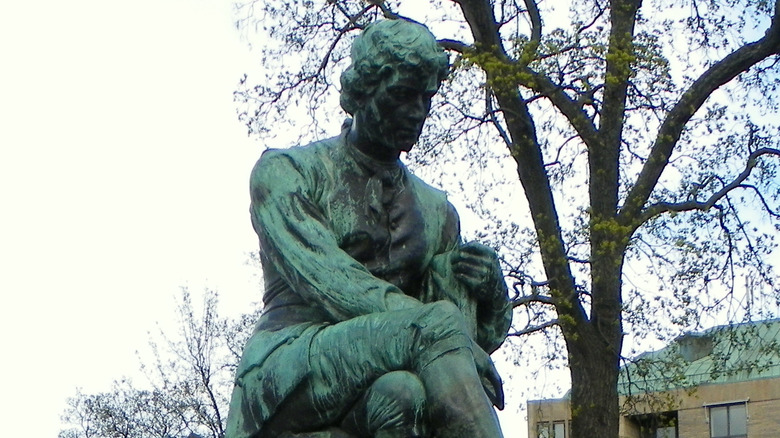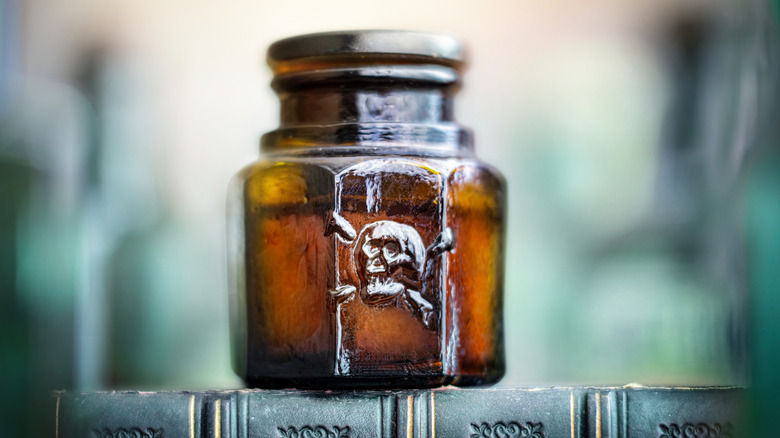The True Story Of A Chemist With The Bizarre Habit Of Tasting Chemicals He Worked With
They always say that you should never get high off of your own supply. Undoubtedly, it's a recipe for disaster, but in the case of renowned 18th century chemist Carl Wilhelm Scheele, recreation likely had nothing to do with it. Let's back up a bit, though. Scheele, as Britannica reports, was born in Germany in 1742. He developed an infatuation with chemistry and science at a young age and became a pharmacist's assistant when he was only 15 years old, which granted him near unlimited access to a whole arsenal of chemicals and substances to experiment with.
As time went by, his inner circle of research associates grew, and by the time 1775 rolled around, Scheele was living in Sweden and had officially begun work at the Royal Swedish Academy of Science. It was throughout that era that the esteemed chemist achieved great heights in the field of chemical inquiry and carved out a new epoch in the history of science.
Scheele's experiments with oxygen
Carl Wilhelm Scheele is regarded as a distinct entity in the world of science for a number of his great findings. The most notable of them all, however, is what he managed to achieve in the way of an all-too-familiar little molecule known as oxygen. According to the American Journal of Physiology, Scheele was the very first person to perform experiments that actually prepared and produced oxygen, and in doing so, he got a much closer look at its individual properties.
He also disproved what was widely regarded as a universal truth at the time — the archaic phlogiston theory. Britannica reports that the phlogiston theory postulated that a substance known as phlogiston (aptly named) was inherent in all combustible things and, in laymen's terms, was released when the object at hand was burned. Scheele's findings replaced this theory and improved upon the scientific paradigm for generations to come (via American Journal of Physiology).
Who wants a sip? Sip time.
Okay, so let's circle back to that ominous little bit in the beginning about dipping into one's own supply. Sacrifices in the name of inquiry are hardly an uncommon thing, but Carl Wilhelm Scheele took things a step further by actually drinking some of the chemicals he worked with, as the American Journal of Physiology reports. He was almost like a real-life Dr. Jekyll, though as far as we know, he never turned into Mr. Hyde after ingesting arsenic, lead, and other toxic chemicals that should NEVER cross over one's lips.
It's tough to say whether or not Scheele's audacious disposition for drinking deadly chemicals did anything to augment his research, but according to the National Library of Medicine, many speculate that it could very well have contributed to his early death (big shocker, eh?). Scheele died in 1786 at the age of 43 in Sweden from compounding complications with renal disease (per American Journal of Physiology).


